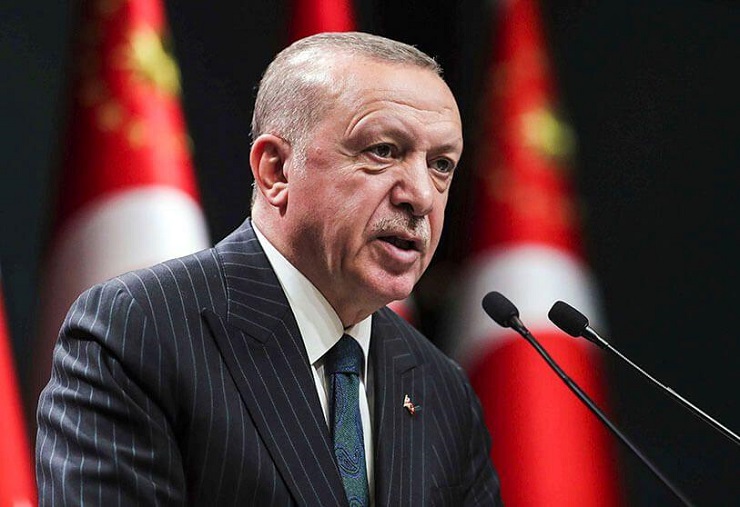Whereas Turkey-US ties have become strained over the past few years and a strategic divorce is no longer completely unrealistic, Turkey’s foreign policy continues to revolve around the question of striking a balance between the West and the East. While its geographic location on the borders of Asia and Europe appears to largely shape its broader foreign policy orientation, Turkey, under Erdogan, has also acquired, or at least is trying to acquire, a major power status whereby it can act as a ‘balancer’ between world’s two major power poles. But Turkey’s particular strategic positioning, inspire by a quest to re-establish itself as a ‘Neo-Ottoman’ empire capable of following a truly independent foreign policy and act as a major power, has effected, more than anything, a schism between Turkey and its NATO allies, especially the US. The US has kicked Turkey out of F-35 development program, and their bi-lateral relations have never been so tense as they are today. If Turkey’s primary motivation behind repairing its relations with Russia was to counter-balance its dependence on the US and thus acquire a better bargaining position, it has clearly backfired; hence, Turkey’s attempts to re-establish the balance.
If Turkey can acquire F-35 jets as a NATO member, it will be a major boost to its air-defense capability. To do this, it recently hired a Washington-based law firm to lobby for its readmission to the US F-35 fighter jet programme. Ankara had ordered more than 100 stealth fighters and has been making parts for their production, but it was removed from the programme in 2019 after it bought the Russian S-400 missile defence systems, which the US believes can threaten the F-35s.
Turkey’s hiring of a lobbying firm affirms that a political transition in the White House has not led to an automatic transition in their bi-lateral relations. It confirms that their disagreements are based upon policy differences that go well beyond the incumbent presidents. Therefore, Turkey’s attempts to recalibrate its ties with the US are unlikely to pay any dividends for one reason: their differences are not political; they are strategic and their identity as NATO allies gets repeatedly outweighed by their differences.
On February 23, the Pentagon confirmed that:
“there’s been no change to the administration’s policy with respect to the F-35 and the S-400. Again, we urge Turkey not to move ahead with the delivery of the S-400.”
The US position remains unchanged despite a recent hint by Turkey’s Defense Minister Hulusi Akar about the possibility of a finding a “manageable solution” to the S-400 system.
Turkey’s strategic position as an independent player, positioned at the intersection of the West and the East, is the fundamental reason for the unchanged position of the US.
For one thing, the US-Russia rivalry is very much rooted in the zero-sum thinking of cold-war competition. Turkey, on the other hand, with its very peculiar geo-graphical position coupled with its quest to translate this location into a foreign policy, does not serve the US zero-sum game against Russia.
The fact that Turkey has established strong political and militray ties with Russia shows that the US and Turkey have fundamentally different threat perceptions. Accordingly, whereas Turkey appears to believe that today’s international system is not as Western-centric and US-dominated as it used to be, and that Turkey should pursue its interest via a more varied geopolitical balancing act, Washington, obsessed as it is with resisting US downfall as the sole super-power, sees Turkey’s such reading of international affairs as abnormal and unrealistic. For Erdogan and Turkish policy makers in Ankara, it is seen as adjusting to the new normal in global politics.
These difference have also produced certain political flashpoints, the most important manifestation of which is a long-running crisis between Turkey and the US Central Command (CENTCOM) over the Syrian crisis and the way the US continues to militarily support Kurdish militias, especially the YPG.
In this context, the Biden administration, which has promised to work towards re-establishing US dominance at global level, is most likely to resist Turkey’s attempts to operate as an independent player within the ambit of NATO, an organization that remains trapped in the cold-war thinking and continues to imagine and reinvent itself to fight a war against Russian in Europe.
Accordingly, whereas the US would want to reset ties with Turkey if the latter gives up S-400 system and comes back to the NATO, Turkey wants to do this reset in a way that would bring the US round to the idea of accepting the new geopolitical reality in Turkey’s neighborhood, including Turkey’s role in it, and the broader changes in international affairs.
While an idealist would argue for finding a “middle ground” to bring the two countries closer, it remains that the US does not have any compelling reasons to re-define its core world-view for Turkey. As it stands, Turkey is not an indispensable NATO ally. This is evident from the fact that the US is already preparing plans to relocate its Incirlik air base in Turkey to the Greek island of Crete.
Whereas this relocation would be a major set-back for Turkey, it will continue to serve US interests in the region. On the other hand, if Turkey decides to give up S-400, it will still be a major strategic set-back for its self-positioning as a major international player capable of influencing regions well beyond its territorial borders, and for its self-image as a ‘Neo-Ottoman’ empire.
While Turkey has offered to find a compromise formula and lay out conditions under which S-400 can be made operational and used, the future of this offer remains dependent on how the Biden administration reads and responds, which in turn depends on how well this formula can preserve and enhance US interests regionally and globally.
Salman Rafi Sheikh, research-analyst of International Relations and Pakistan’s foreign and domestic affairs, exclusively for the online magazine “New Eastern Outlook”.

